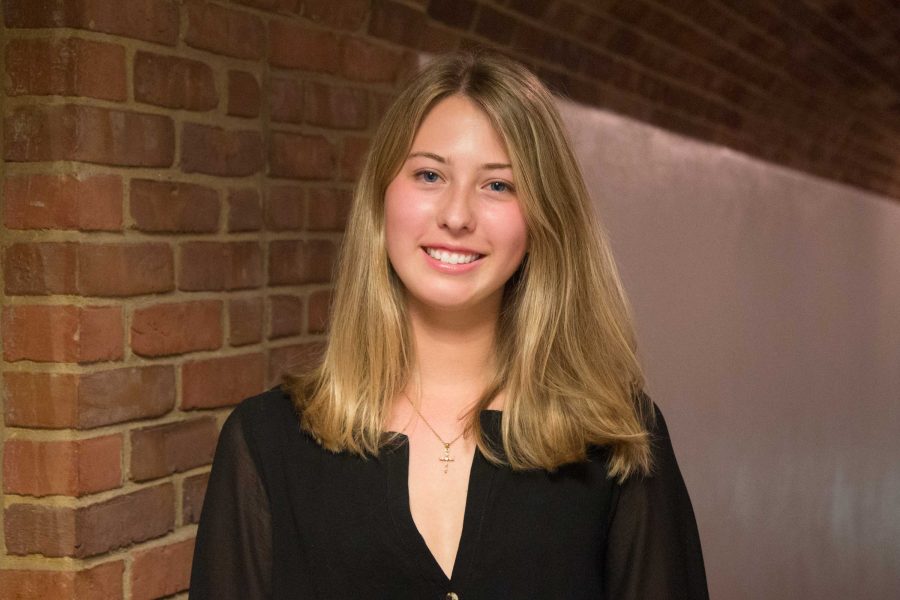What are you not-so-great at? Is it singing, or dancing? Or maybe you’re a poor athlete or test-taker. Whatever it is, imagine if society decided that your weakness made you a broken, lesser person. Imagine if people refused to look you in the eye, or made assumptions about your character, solely because you couldn’t sing (or dance, or play soccer, or take tests, etc.). Imagine feeling socially isolated and utterly misunderstood.
Doesn’t feel great, does it? Well, most people with disabilities receive similar treatment on a daily basis, and they don’t enjoy it any more than you would.
In November of 2017, I found out that I am autistic. It shifted my perspective on disabilities, as I began to reassess my identity. Before my diagnosis ever crossed my mind, I was the kind of person who tried not to think about disability. I considered it an unfortunate reality for those it afflicted, and an irrelevant topic for the rest of us. Worst of all, my misguided and incomplete understanding of disability was never challenged. The people I encountered every day largely believed variations of the same falsehood. And even though my thinking has been transformed, the people around me continue to act like disability is an inherently negative state, best avoided in conversation.
The intent of this column will be to challenge that mindset. I want you to each think about disability, talk about disability and intentionally seek the perspectives of people with disabilities.
One of the largest barriers to a paradigm shift on this topic is the word “disability.” It currently has a negative connotation, with the prefix “dis-” insinuating a deficit. From a medical perspective, it makes sense to diagnose someone based upon the set of challenges they are facing. But societally, it’s time we stop thinking about disabled people like a lesser species of human. Everyone has a unique set of strengths and weaknesses – and people with disabilities simply have a challenge, difficulty or weaknesses that they are receiving specific supports or treatment for.
While we’re talking about the word “disability” – it’s worth mentioning that much of the disability community would like to reclaim this term. Much like LGBTQIA+ folks embracing the word “queer,” many disabled people want to be able to embrace their disability identity without fear of stigma. For that to happen – again mirroring the LGBTQIA+ rights movement – the general public must stop acting like disabilities are something to be ashamed of.
Last spring, I wrote an article about Neurodiversity. The premise – that neurological differences should be treated as a form of diversity, to be celebrated – can be extended to all disabilities. This is where a nuanced understanding of disability becomes necessary. I’m definitely not saying that disability is entirely good. The whole reason they are called “disabilities” is because they make some part of that person’s life more challenging than it would have otherwise been. But living with a disability becomes a central part of that person’s identity, giving them a unique and valuable outlook.
We must celebrate those special perspectives, and the formative role the disability plays in that individual’s sense of self. And we must always recognize that disabilities don’t detract from otherwise “whole” people; rather, they add an additional dimension to one’s lived experiences.
Furthermore, many segments of the larger disability community have distinct subcultures that are worthy of recognition and celebration. Many deaf people, for example, have built their entire lives around the connections and one-of-a-kind culture they experience in the deaf community. For this reason, some members of the group don’t want to have “normal” abilities (in this case, hearing). As baffling as that might seem to a person who has never experienced deaf culture, we have an obligation to respect and appreciate the value that deaf culture adds to the world.
In an attempt improve Vanderbilt’s inclusivity of disability, the Office of Inclusive Excellence is starting a campaign they’re calling “InclusAbility.” It touches on many of the ideas I’ve been talking about, from celebrating disability perspectives to fostering conversations on the topic. The office will host several events for Disability Awareness Month in October, beginning with the InclusAbility Campaign Kickoff on Thursday, October 4th from 3-5pm on the SLC Plaza.
InclusAbility is hopefully just the start of Vanderbilt’s journey to truly valuing students and faculty with disabilities. I’ll be discussing the next steps that Vanderbilt should take, along with disability identity and culture, throughout the year in this column. Keep reading, and email me at [email protected] if you’d like to share something related to disability that you think I should talk about.

